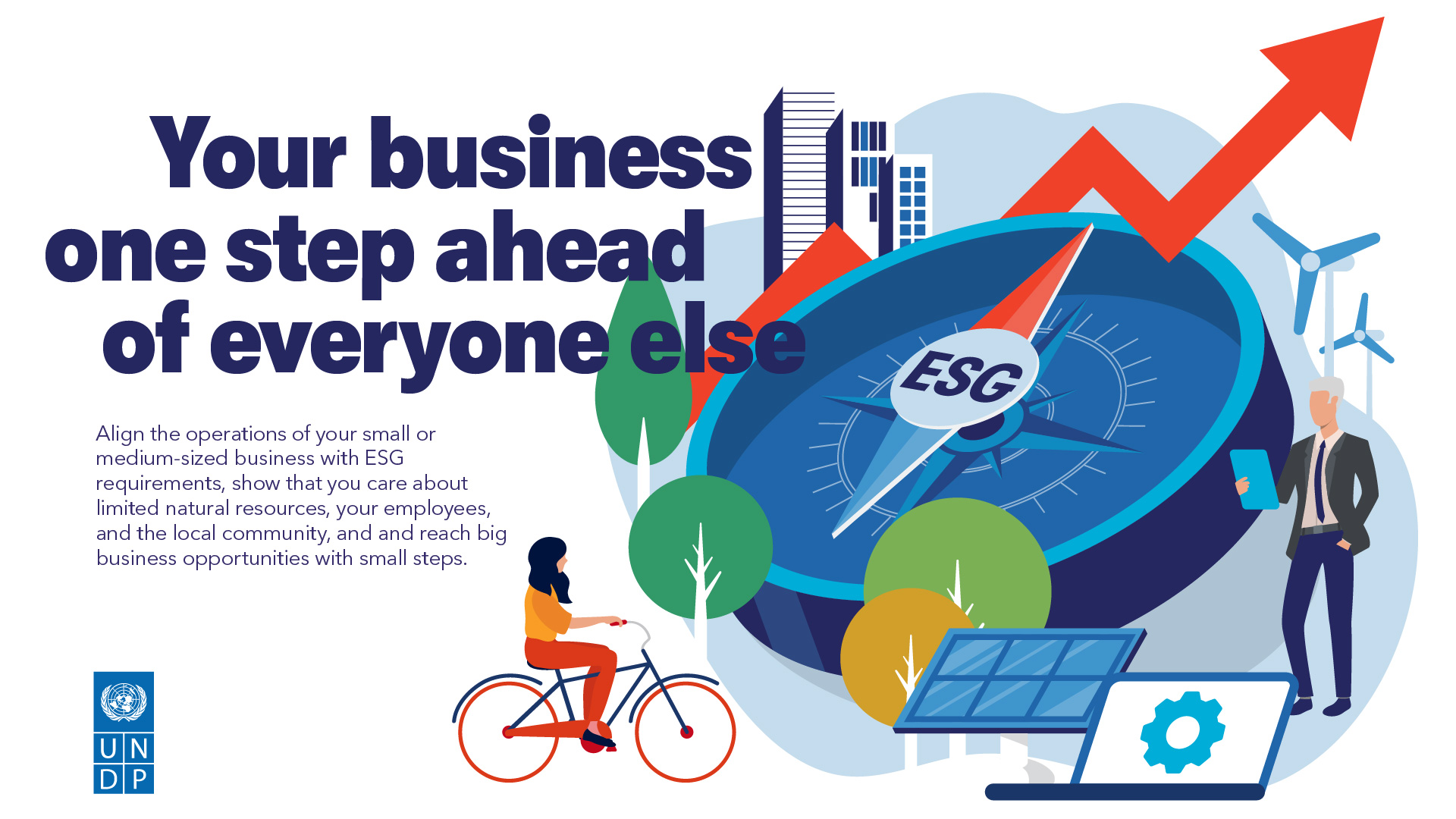Your Business One Step Ahead of Everyone Else’s
What will the new EU Regulations on Sustainability bring for medium enterprises?
September 28, 2023

Belgrade, September 28, 2023 - In today’s dynamic business environment, small and medium enterprises (SMEs) that wish to have access to the European market and become a part of big companies’ supply chains can make a significant step in that direction by implementing ESG criteria. Namely, big companies increasingly recognise the importance of implementing the ESG (Environmental, Social, and Governance) criteria in selecting their partners in the supply chain. In this process, they use so-called “Due Diligence”, or in-depth analysis, which has more and more impact on SMEs in Serbia.
“ESG Due Diligence, i.e., in-depth analysis, represents a process of thoroughly investigating and evaluating potential business partners in order to secure that they fulfil the ESG criteria,” says Milica Mišković, ESG Criteria and Sustainability Expert from the Smart Collective.
Until recently, ESG Due Diligence was not obligatorily implemented in supply chains, but new EU legislation brings substantial changes in this respect. The Due Diligence Corporate Sustainability Directive, coming into effect in 2024, obliges big companies with their headquarters in the EU to make regular analyses of the social and environmental impacts of their partners in global supply chains. This directive regulates more than 20 requirements concerning the prohibition of breaching human rights and more than 10 requirements dealing with environmental impact. Among these requirements are those concerning the prohibition of forced and child labour, the prohibition of disrespect for the freedom of association and safety at work, or the denial of fair compensation for one’s work, as well as the prohibition of denying one’s right to a healthy environment.
Mišković adds that this very question of sustainability, i.e., the impact of business on society and the environment, becomes increasingly important when selecting business partners. “The bigger and more valuable the job, the more numerous are the checks that are performed, and the higher the expectations. This means that even when SMEs have a good financial offer, they can lose the job in case they fail to harmonise their operation with the ESG requirements,” emphasised Mišković.
Many SMEs in Serbia have already implemented the good practices of sustainable business, or they are harmonised with national legislation, but they have often failed to introduce the ESG requirements formally in their policies and procedures. Mišković highlights that big companies want reliable suppliers who will not put their business and reputation at risk, and what is about to be changed now is that implementation of the ESG criteria would be expected from all partners, i.e., it is necessary to demonstrate at once the integration of these requirements in all aspects of one’s business.
In order to support small and medium enterprises in Serbia in improving their businesses, the United Nations Development Programme (UNDP) organised “ESG Practitioner” trainings in partnership with the Development Agency of Serbia and the Smart Collective. This training programme is organised as a part of the “Promotion of Sustainable Investment” programme, that UNDP implements in partnership with the Government of the Republic of Serbia and with the support of the United Nations Peace and Development Trust Fund (UNPDF) and the UN Department of Economic and Social Affairs.

 Locations
Locations